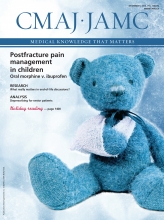For years I asked my father to buy me a bicycle. My father, who had come to Canada from the former Soviet Union, was skeptical, but when I turned 12, as a Hanukkah gift, he bought me a second-hand CCM Glider. It was blue with chrome mudguards. I named it Rocket.
“But I wanted a new racer,” I said.
“Be grateful,” my father replied.
I rode Rocket to anatomy labs, through rain or snow. He had a tendency to throw me from the saddle when I turned quickly in rainy weather.
Time was not kind to Rocket; his gear chain snapped twice, his frame corroded. I polished him, oiled his joints, cleaned his rusted body and painted him bright red.
He accompanied me to McGill in Montréal for my psych residency. But things weren’t the same. I was married. My wife had a car. I occasionally cycled south on Park to the Royal Victoria, but Rocket was often left alone on the balcony of our apartment. I felt guilty. Rocket was a bicycle, not a person, I knew that. But we develop relationships with inanimate objects: our baby blanket, our first toy. Perhaps I was seeing Rocket as a disconnected part of myself.
That winter I rode Rocket to the Allan Memorial Institute for psychiatry lectures. It was there I first encountered a slim curly haired fellow resident, Dr. Marcel Azzi. He was fascinated by my intrepid winter cycling.
“This is amazing. I hardly walk in the snow, and you ride a bike. I have never skated or skied,” he said. “I never had a bicycle.”
In July, Dr. Azzi and I were in our PGY-3 rotation. We ate lunch together and talked of our families. Dr. Azzi said I was un Anglais typique — serious, practical, restrained. He was well-mannered and deferential, but as I got to know him, I sensed his insularity.
We were more similar than different. He was Christian–Lebanese; his family lived with the uncertainty of Beirut. My Jewish grandparents had fled the former Soviet Union for a better life in Canada. My mother never had skates or a bicycle. My father never learned to swim.
In August, I urged Dr. Azzi to take Rocket for a ride.
“Tu peux l’essayer, si tu veux?” I asked.
“It is too high up.” Dr. Azzi shook his head. “I will fall down.”

Image courtesy of Fred Sebastian
“Please try,” I said.
“I am a grown man,” Dr. Azzi said. “A boy must learn to ride from his father. It is too late.”
We argued, but eventually he agreed to try. Dr. Azzi was wiry and slight. I lifted him onto Rocket, steadied him as he pedalled then released my grip. For a terrifying moment he was on his own.
“It is too much for me. I am high in the air.” Dr. Azzi dismounted.
In September and October, I brought Rocket to the hospital. At first reluctant, Dr. Azzi now eagerly awaited Rocket. I gave him lessons. Our formality vanished, and we now called each other by our first names. By November, he could ride Rocket by himself.
“Suppose I forget how to ride?” he said one day.
“Once you learn, Marcel, it is never forgotten,” I assured him.
Later in November, I gave Rocket to Marcel as an early Christmas gift. Reluctantly, he accepted. I experienced a strange but immense relief. Old Rocket had a new home. That week I went out to my local sports store and bought myself a Hanukkah present: the racing bike I’d wanted since childhood.
Footnotes
-
All characters in this work are fictitious. Any resemblance to real persons, living or dead, is purely coincidental.











